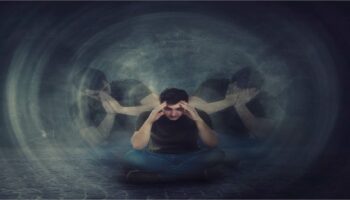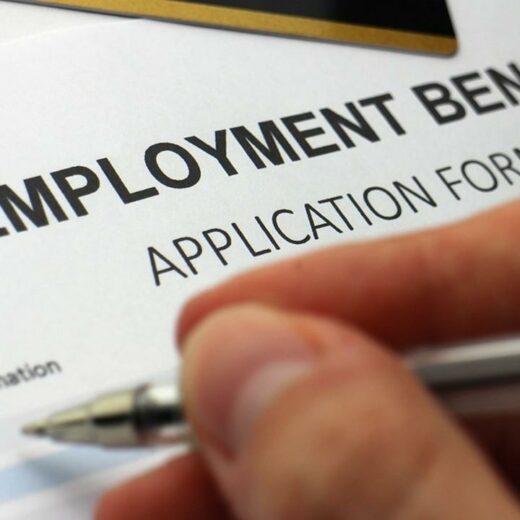How to Sleep Better Without Medication
The Nystrom & Associates provider consulted for this article on sleeping better was Dr. Richard Blackburn, Ph.D., a licensed psychologist, diplomate of the Board of Behavioral Sleep Medicine, and Fellow of the Society of Behavioral Sleep Medicine.
Does this sound familiar? You lie awake in bed, eyes wide open, mind toiling to find a way to get to sleep. You fight the urge to pick up your phone or glance at the alarm clock. “I have to get up in 5 hours,” you think as anxiety mounts in your chest. “Why can’t I go to sleep?”
We’ve all been there. Even when we feel exhausted, we can’t fall asleep. What can we do about this?
If you’re like many Americans, a doctor may prescribe you a sleeping pill. Or maybe you’ll pick up Advil PM or a melatonin supplement from the vitamin aisle at your local grocery store.
However, many of us worry that using sleeping pills will cause us to need higher and higher doses for them to remain effective.
So, is there a way to sleep better without medications?
Dr. Richard Blackburn says yes. In fact, he practices something called Cognitive Behavioral Therapy for Insomnia, which is all about changing your beliefs, behaviors, and physiology to get a better night’s rest. In this post, we’ll explore some of his tips for sleeping better without medication!
Your Sleep and Mental Health
Intuitively, we know sleep is vital to our mental health. If we don’t sleep well for several days in a row, we often feel more on edge or sad. And Dr. Blackburn says that it has a significant impact on our mental well-being.
Research has continually shown that people who have problems with sleep have a greater risk of developing a mental health disorder. It also shows that if you treat the sleep problem, it can significantly improve the mental health disorder.
So, we know your mental health will get better with improved sleep, and without it, you’re much more likely to develop depression, anxiety, or another mental health disorder. So, is medication the answer?
Related: 6 Signs of Mental Illness
Do Medications Help You Sleep Better?
Typically, if you tell your doctor you have trouble sleeping, she will prescribe you a sleeping pill or suggest an over-the-counter sleep medicine like Advil PM. This makes sense - medications work almost instantly. But they do have diminishing returns. Many people have to continue upping their dosage until they max out on the medication. And, if they do get off it, it still leaves them with the underlying sleep problem. Dr. Blackburn insists that medication may treat symptoms but not the root causes of the issues.
There are also some other risks with taking over-the-counter medication, including a higher risk of dementia.
[With] the over-the-counter sleep supplements that include doxylamine [used in Unison] or Benedryl [used in Advill PM], there’s been a significant amount of research that medications that have what’s called an anticholinergic effect - in other words, they dry you out - increase your risk of developing Alzheimer’s fourfold. And using a sleep medication like your Advil PM as little as two nights a week significantly increases your risk of developing a dementia-related disorder later in life.
Ultimately, he encourages folks to make an informed decision with their prescribing doctor. He insists he is not anti-medication, and he believes that behavioral treatments will work even if someone is on a medication. It can be a “both/and” rather than an “either/or.”
So, what are some of these behavioral changes that can help you sleep better?
Drink Less
One of the behavioral changes Dr. Blackburn recommends is drinking less alcohol. He assures you that while alcohol will make you feel sleepier, it will ultimately wreck your deeper sleep throughout the night. Alcohol activates the GABA receptors in your brain. This will make you feel ready for bed pretty quickly.
While that sounds good at first, unfortunately, that’s not all alcohol does.
Once the brain notices the increase in GABA, it quickly overcompensates and starts firing all cylinders to return the body to baseline.
Alcohol is processed very quickly through the body, and the way your brain tries to compensate as you’re drinking more and more is that it releases this chemical called glutamate…So, think about people who drink, and they have one drink, they relax. Then they have five drinks, and they’re dancing on the tabletop.
That’s because that glutamate builds up. And the brain overcompensates. So, as the glutamate is building, the alcohol and the GABA are dropping, and now you have a person who is highly stimulated. We know that people who drink alcohol as a nightcap fall asleep faster, but they wake up more often throughout the night and get less deep sleep.
Related: 5 Ways to Prevent Substance Abuse
Get Out of Bed
What do you do when you can’t sleep? Count sheep? Take deep breaths? Dr. Blackburn insists that you do something completely different - get out of bed and do something else. He says if you stay in bed tossing and turning for too long, it will train your brain to associate your bed with stress, ruminating, and sleeplessness.
This is why you hear a lot of sleep experts insist on not watching TV or scrolling through TikTok in your bed - it teaches your brain to be active and awake in that environment.
I tell people I would much rather have them being awake and doing something they enjoy than lying in bed, being stressed that they’re not able to sleep.
So next time you can’t sleep, don’t just lie there - get up! Get out of bed, read a book, do a puzzle, and let yourself get sleepy again.
Related: 4 Anxiety-Related Negative Thought Patterns
There's Always Tomorrow Night
When you’re stressed, you’re not sleeping.
And if you’re having a hard time sleeping, don’t try to fight it or try to force yourself to sleep. You don’t need to get anxious, angry, or depressed. One night of poor rest won’t ruin your week. Maybe you’ll need to adjust some of the next day’s schedule a bit, cancel a plan or two, but it won’t be the end of the world. Dr. Richard Blackburn says, “There’s always tomorrow night.”
If you're restless tonight, you’ll probably sleep better tomorrow night. Take it easy on yourself; everyone has rough nights sometimes.
Related: Are Fake Rules Running Your Life?
A Word from Nystrom & Associates
Sleep issues don’t have to be something you face alone. If you’re having consistent trouble sleeping and you’re looking for a way to feel better without medication, please reach out. Dr. Richard Blackburn and several other of our providers specialize in Cognitive Behavioral for Insomnia (CBT-I).
We offer in-person and virtual appointments. Call 1-844-NYSTROM to speak with our scheduling coordinators today or request an appointment online.






